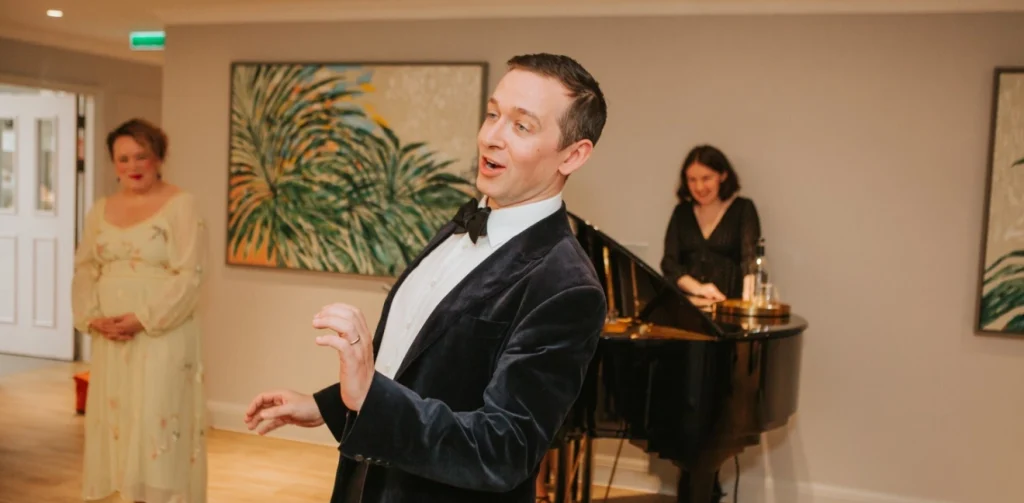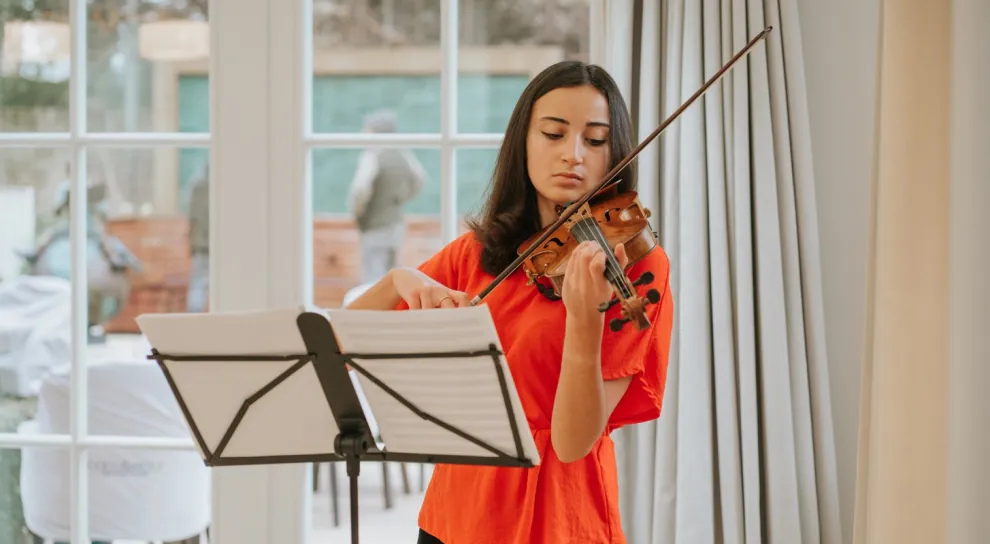Loveday’s dedication to enhancing the lives of our elderly Members, including those living with dementia, through music therapy is a central part of our commitment. Our team employs a personalised approach from the start, conducting thorough lifestyle assessments to understand unique interests, including their musical tastes, in order to create a bespoke care plan. Our diverse musical program spans a wide range of genres and instruments, fostering joy and connection among our Members. This engagement extends beyond enjoyment; it includes sensory benefits and progressive therapies such as psychodynamic dance therapy, all with positive outcomes. Live performances and cultural celebrations further enrich the lives of our Members. With music’s emotional, cognitive, and social benefits, Loveday continues to deliver exceptional and meaningful experiences tailored to each individual’s preferences and needs, further enhancing their quality of life.

The benefits of music are numerous, comprising emotional and psychological, cognitive, social, physical and wellbeing benefits including:
Emotional and Psychological Benefits
Music has a profound impact on individuals with dementia, offering various benefits. It can improve their mood by evoking positive emotions and reducing anxiety. Moreover, music therapy has the potential to calm and soothe those with dementia, which may lead to a decrease in challenging behaviors such as agitation and aggression. Even when verbal communication becomes difficult, music provides a means for individuals to express themselves, granting them a renewed sense of autonomy and self-expression.
Cognitive Benefits
Music holds the potential to stimulate memory recall, particularly through familiar songs, which may aid in slowing down the decline in memory. Moreover, active involvement in music, such as singing or playing an instrument, engages cognitive processes like attention and problem-solving, contributing to cognitive engagement and mental agility.
Social Interaction
Group music therapy sessions encourage social interaction and can help individuals with dementia feel more connected to others.
Family and Carer Bonding: Music provides an avenue for meaningful interactions and bonding with family members and carers.
Physical Benefits
Rhythmic activities, like dancing or playing percussion instruments, can promote physical movement and coordination. Music can also be hugely beneficial for relaxation; slow, calming music can induce relaxation, reduce stress and improve the quality of sleep.

Communication and Language
Singing or rhythmic activities can promote speech and verbal expression in individuals who may have difficulty communicating through conventional means. Music can be a powerful tool for caregivers to establish a deeper connection with those in their care, so they understand how to soothe or uplift.
Quality of Life
Music therapy provides a meaningful and enjoyable activity, enhancing the overall quality of life for people with dementia.It allows individuals to maintain a sense of identity and dignity, even as the disease progresses.
Sensory Stimulation
Music engages various senses, including hearing, touch (with instruments), and sometimes even sight (if combined with visual stimuli), which can enhance overall sensory experiences.
Cultural and Personal Connections
Music can be tailored to an individual’s cultural background and personal preferences, making it a highly personalised form of therapy.
Music therapy for the elderly and individuals living with dementia should be tailored to the individual’s preferences and needs, and it often works best when integrated into a comprehensive care plan that includes medical, social and psychological support. At Loveday, we pride ourselves in delivering exceptional experiences that are personally curated and meaningful to all. We are very proud of the results of our innovative music programme and stay committed to progressing our offering.




